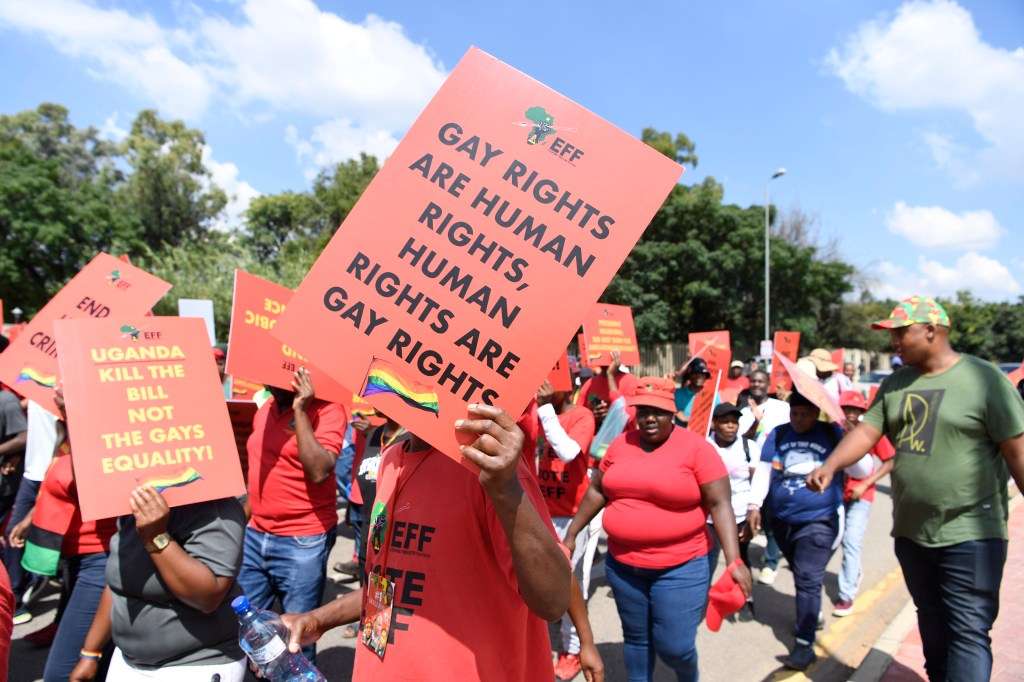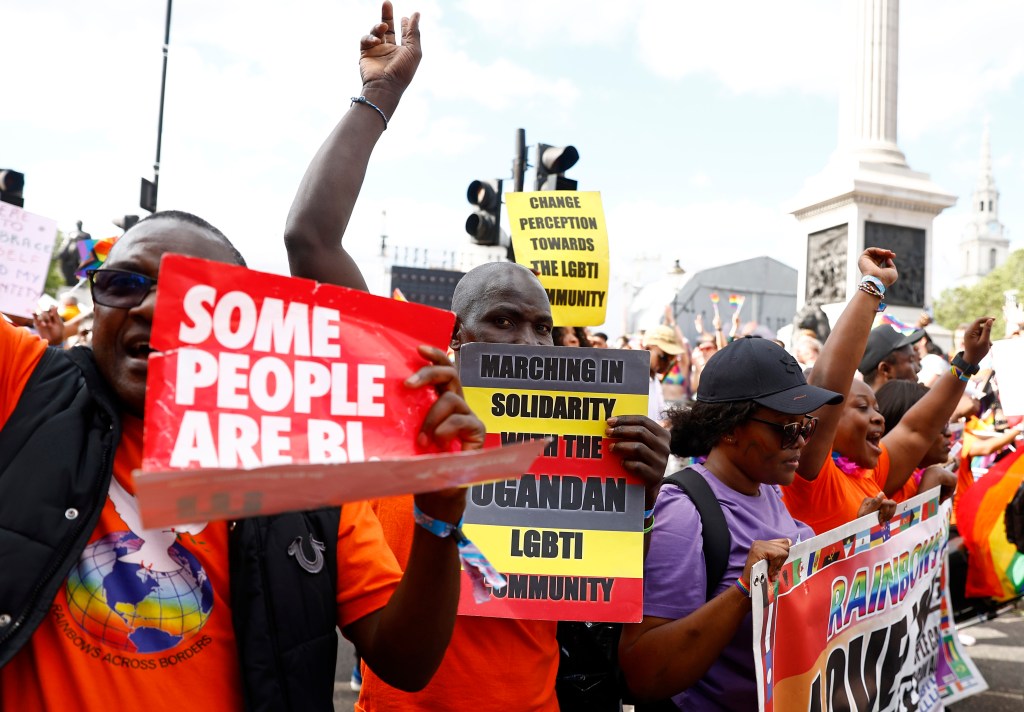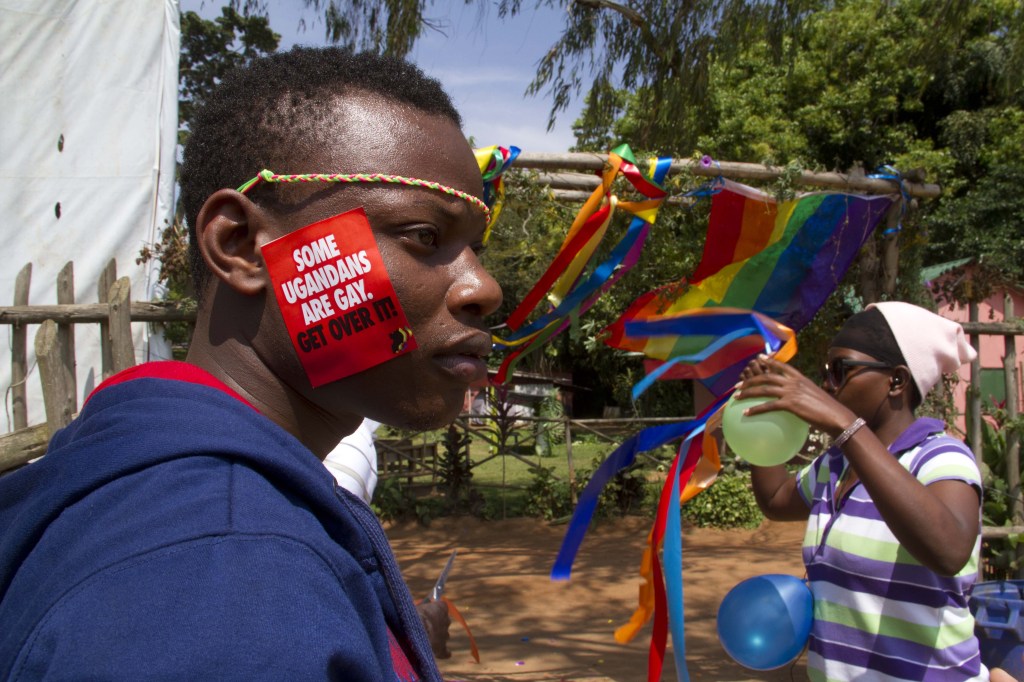Gay US ambassador to Hungary marches in Budapest Pride parade
U.S. Ambassador to Hungary David Pressman on Saturday marched in the annual Budapest Pride parade.
Pressman, who is gay, posted to his X account pictures of him holding an American flag while standing behind a banner that read “United States embassy.” Pressman on Sunday spoke at Budapest Pride’s Family Pride Event that took place at his official residence.
“We’ve gathered for a celebration of families, of freedom, and of love — all things that are increasingly under attack for LGBT people in Hungary,” he said.
Pressman in his speech referenced a joint statement from 35 countries that expressed “serious concern about the targeting of LGBTQI+ people in Hungary, and called for the government to eliminate its discriminatory laws, policies, and practices.”
The U.S., Australia, Austria, Belgium, Bulgaria, Canada, Croatia, Cyprus, Czechia, Denmark, Estonia, Finland, France, Germany, Greece, Iceland, Ireland, Kosovo, Latvia, Lithuania, Luxembourg, Malta, Montenegro, North Macedonia, New Zealand, Norway, Poland, Portugal, Slovenia, Spain, Sweden, Switzerland, the Netherlands, the U.K. and Ukraine signed the statement alongside the U.S. and the General Delegation of Flanders, the Austrian Cultural Forum Budapest, the British Council, the Czech Centre, FinnAgora, Institut Français, Goethe-Institut, Instituto Camões and Instituto Cervantes.
“On the occasion of the 29th Budapest Pride Festival, we the undersigned embassies and cultural institutes express our full support for members of the lesbian, gay, bisexual, transgender, queer, and intersex (LGBTQI+) community in Hungary and their rights to equality and nondiscrimination, freedom of expression and peaceful assembly, and freedom from violence, among others,” reads the statement. “Respect for the rule of law and universal human rights are the foundations upon which democratic states are build. International human rights law is grounded on the broad premise that all individuals have the same rights and freedoms without discrimination.”
Pressman in his speech said the Family Pride Event took place “at a time when democracy itself — in this country and around the world — is confronting unprecedented and serious threats.”
“I’d like to talk with you this afternoon about freedom and democracy; and about those who instrumentalize love to undermine both,” said Pressman.
“The fact that LGBT people and democracy are both under increasing attack is no coincidence,” he added. “Those who seek to undermine democracy, traffic in fear; and, tragically, few currencies of fear continue to hold more value than the love in this community.”
Pressman further noted “posters all over Budapest during this political season fixated on you,” referring to LGBTQ Hungarians.
“It’s why your parliament adopted laws aimed at you, and your government is now implementing those laws to target you,” he said.
https://www.youtube.com/embed/dDkrGGHvkq8?feature=oembed(Video courtesy of the u.s. embassy in hungary’s youtube page)

Pressman has been a vocal critic of Hungarian Prime Minister Viktor Orbán and of his government’s crackdown against LGBTQ rights that has grown worse over the last decade.
The U.S. ambassador in 2023 reiterated these criticisms during a Budapest Pride reception.
Budapest Pride spokesperson Johanna Majercsik earlier this month told the Washington Blade that Pride “is a particularly important event in Hungary.” (The Blade in April traveled to Budapest, and interviewed Majercsik and other Hungarian activists.)
“Despite being a full member of the European Union since 2004, the Hungarian government has systematically reduced the rights of the LGBTQ+ community,” said Majercsik. “The government apparently doesn’t want to stop there, inciting people against our community, and making references about passing new anti-LGBTQ laws in the future (calling them child protection laws).”


